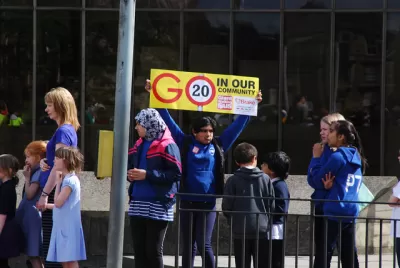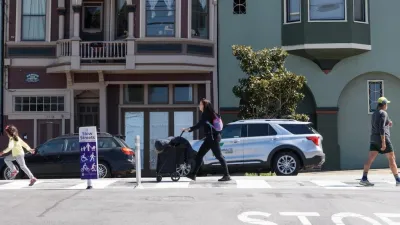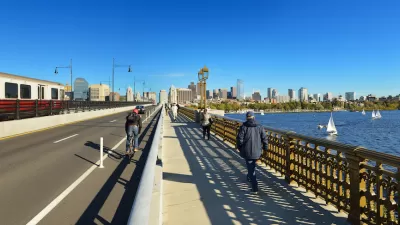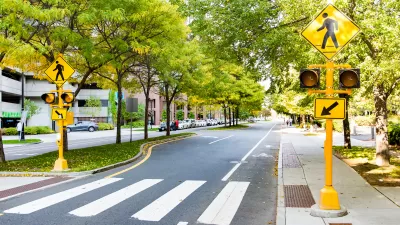Rather than focusing only on which streets are most dangerous, Boston officials asked which neighborhoods wanted safety improvements to slow traffic, 45 different communities around the city said they did.

"In March, the city of Boston announced that after making data-driven improvements to arterials, the city’s new Slow Streets program would ask residential neighborhoods to nominate themselves for traffic-calming features," Rachel Dovey reports for Next City. There are lots of stories about motorists complaining about anything impeding them, but by asking which communities want these improvements the city was better able to work with willing counterparts.
"The goal of having communities nominate themselves was not to create a process in which the squeakiest wheel gets the grease, but to speed up timelines and, in the process, improve neighborhood engagement," Boston Transport Department officials told Next City.
FULL STORY: 45 Boston Communities Asked for “Slow Streets”

Maui's Vacation Rental Debate Turns Ugly
Verbal attacks, misinformation campaigns and fistfights plague a high-stakes debate to convert thousands of vacation rentals into long-term housing.

Planetizen Federal Action Tracker
A weekly monitor of how Trump’s orders and actions are impacting planners and planning in America.

San Francisco Suspends Traffic Calming Amidst Record Deaths
Citing “a challenging fiscal landscape,” the city will cease the program on the heels of 42 traffic deaths, including 24 pedestrians.

Defunct Pittsburgh Power Plant to Become Residential Tower
A decommissioned steam heat plant will be redeveloped into almost 100 affordable housing units.

Trump Prompts Restructuring of Transportation Research Board in “Unprecedented Overreach”
The TRB has eliminated more than half of its committees including those focused on climate, equity, and cities.

Amtrak Rolls Out New Orleans to Alabama “Mardi Gras” Train
The new service will operate morning and evening departures between Mobile and New Orleans.
Urban Design for Planners 1: Software Tools
This six-course series explores essential urban design concepts using open source software and equips planners with the tools they need to participate fully in the urban design process.
Planning for Universal Design
Learn the tools for implementing Universal Design in planning regulations.
Heyer Gruel & Associates PA
JM Goldson LLC
Custer County Colorado
City of Camden Redevelopment Agency
City of Astoria
Transportation Research & Education Center (TREC) at Portland State University
Jefferson Parish Government
Camden Redevelopment Agency
City of Claremont





























